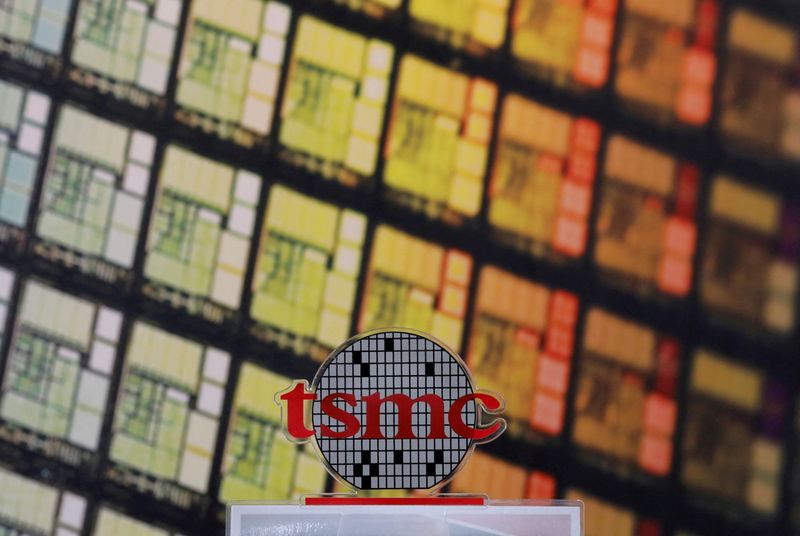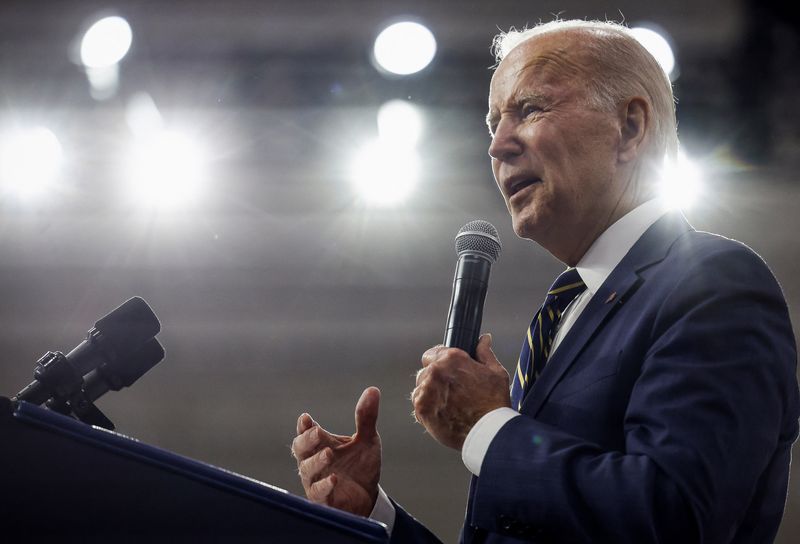By David Shepardson
WASHINGTON (Reuters) -U.S. President Joe Biden plans to travel to Taiwanese chip manufacturer TSMC's Arizona facility on Dec. 6 to promote the administration's push to boost U.S. semiconductor manufacturing, the White House said.
Taiwan Semiconductor Manufacturing Co Ltd, a major supplier to Apple Inc (NASDAQ:AAPL) and the world's largest contract chipmaker, is constructing a $12 billion plant in Phoenix, Arizona, Reuters reported last week. The company is holding a "tool-in" ceremony in Arizona on Dec. 6.
Taiwan Economy Minister Wang Mei-hua said Biden's attendance showed the importance he attached to TSMC's investment.
"I think we will form a good supply relationship with the United States," she told reporters in Taipei.
TSMC founder Morris Chang said last week the company is planning to produce chips with advanced 3-nanometre technology at its new factory in Phoenix but the plans are not completely finalized yet.
TSMC, Asia's most valuable listed company, has said it was building on a site for a potential second plant in Arizona. The company began construction in mid-2021.
Taiwan's dominant position as a maker of chips used in technology from cell phones and cars to fighter jets has sparked concerns of over-reliance on the island, especially as China ramps up military pressure to assert its sovereignty claims.
TSMC's Arizona factory has sparked concerns in Taiwan, where semiconductor manufacturing is the backbone of the economy, about a "goodbye to Taiwan" trend among chip firms. TSMC, which makes most its chips in Taiwan, is also building a factory in Japan.
Wang said that most chips would still be made in Taiwan despite the U.S. and Japanese plans.
Both the United States and Europe are putting up billions of dollars in incentives to get companies to make chips closer to home, courting Taiwanese firms in particular.

In August, Biden signed legislation funding $52.7 billion for semiconductor chips manufacturing and research. The "Chips and Science" law also includes an investment tax credit for chip plants estimated to be worth $24 billion.
By subsidizing U.S. chip manufacturing and expanding research funding, the law aims to alleviate a persistent shortage that has affected everything from cars and weapons to washing machines and video games.
